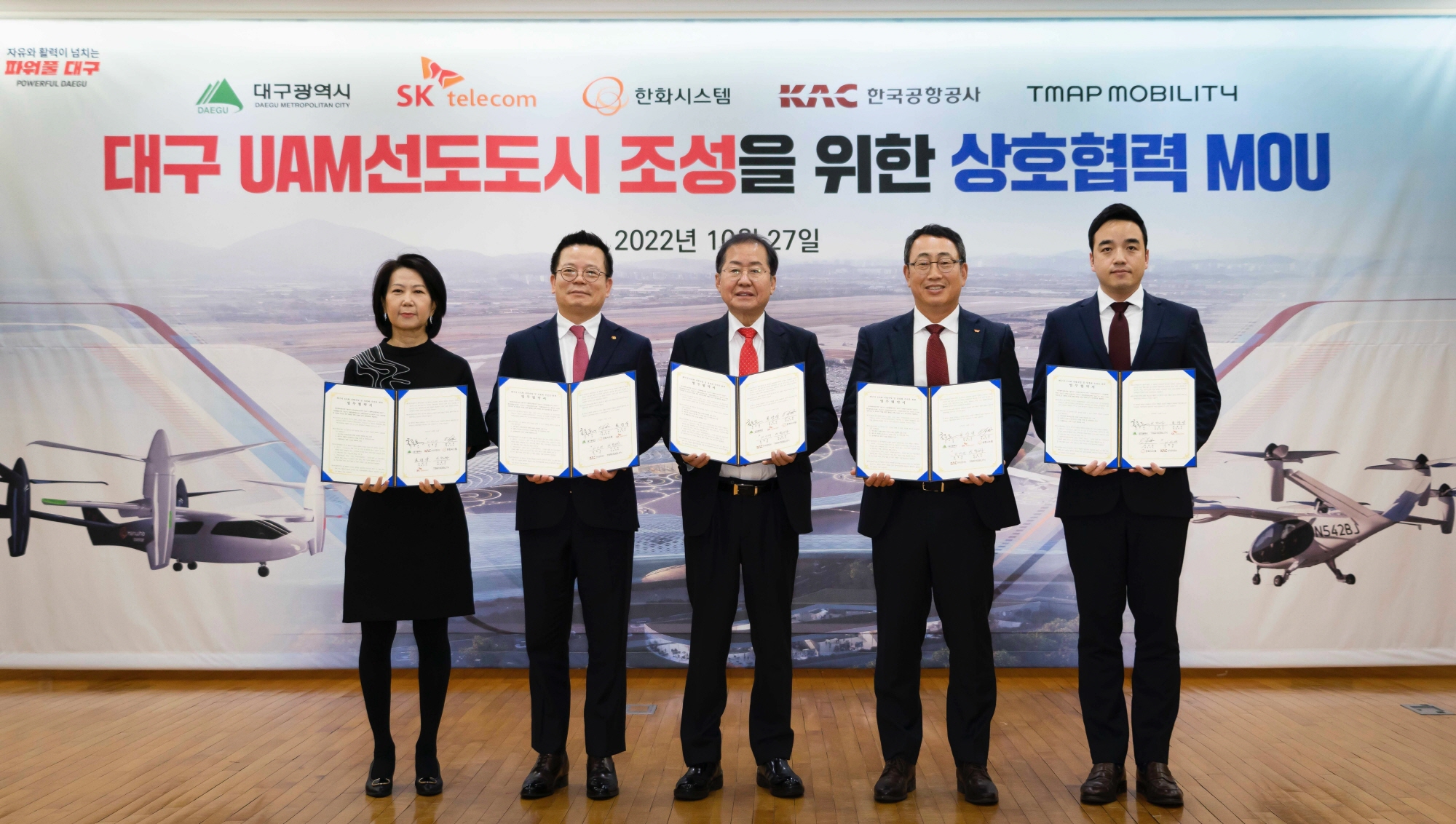
Tmap Mobility has signed a memorandum of understanding (MOU) with Daegu Metropolitan City to advance the urban air mobility (UAM) pilot project and commercialization.
Daegu City plans to focus on nurturing five key future industries, including UAM and semiconductors, establishing a dedicated team for UAM initiatives, the first of its kind in the nation. Major companies within the consortium, such as SK Telecom, Korea Airports Corporation, and Hanwha Systems, involved in the K-UAM Grand Challenge project by the Ministry of Land, Infrastructure and Transport will participate in building Daegu’s future mobility ecosystem and promoting UAM.
With this MOU, Daegu City will implement UAM services in a phased approach from testing, pilot cities to commercialization. The plan includes expanding from urban air mobility services in the city to regional air mobility services between urban areas in alignment with the opening of the Daegu-Gyeongbuk Integrated New Airport in 2030.
Tmap Mobility will take on the role of developing and operating a MaaS platform that integrates UAM and ground transportation. SK Telecom will oversee the overall operation of UAM services and establish dedicated aerial communication networks, while Korea Airports Corporation is tasked with the construction of vertiports—the takeoff and landing sites for UAM—and providing future UAM traffic management services linked to the Daegu-Gyeongbuk Integrated New Airport. Hanwha Systems will handle vehicle development, manufacture, sales, operation, maintenance (MRO), and navigation control solutions.
Daegu City plans to provide infrastructure such as operational sites and facilities for vertiports, alongside creating policies to support project implementation, including authorization and administrative assistance. It will also take on a role in formulating a comprehensive policy plan for the establishment of the Daegu UAM ecosystem.
Earlier this May, Tmap Mobility began in-depth joint research with global UAM leader Joby Aviation to create a ‘Korean-style UAM service.’ The two companies plan to utilize Tmap Mobility’s vast population movement and vehicle operation data, accumulated over more than 20 years, to select optimal domestic UAM routes and vertiport locations. They are also cooperating across various fields, including platform development for actual UAM usage, designing related infrastructure, and constructing services optimized for the domestic market.
Lee Jong-ho, CEO of Tmap Mobility, stated, “We will strive to provide a platform and MaaS service that allow seamless integration and use of UAM and ground transportation, in line with the opening of the Daegu-Gyeongbuk Integrated New Airport.”
Contact: Lee Sang-jin daedusj@autodiary.kr

